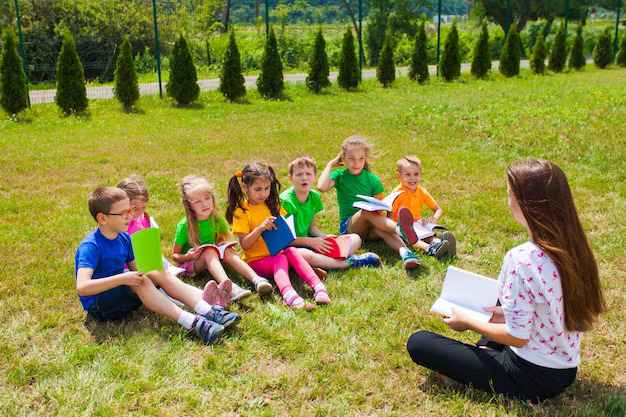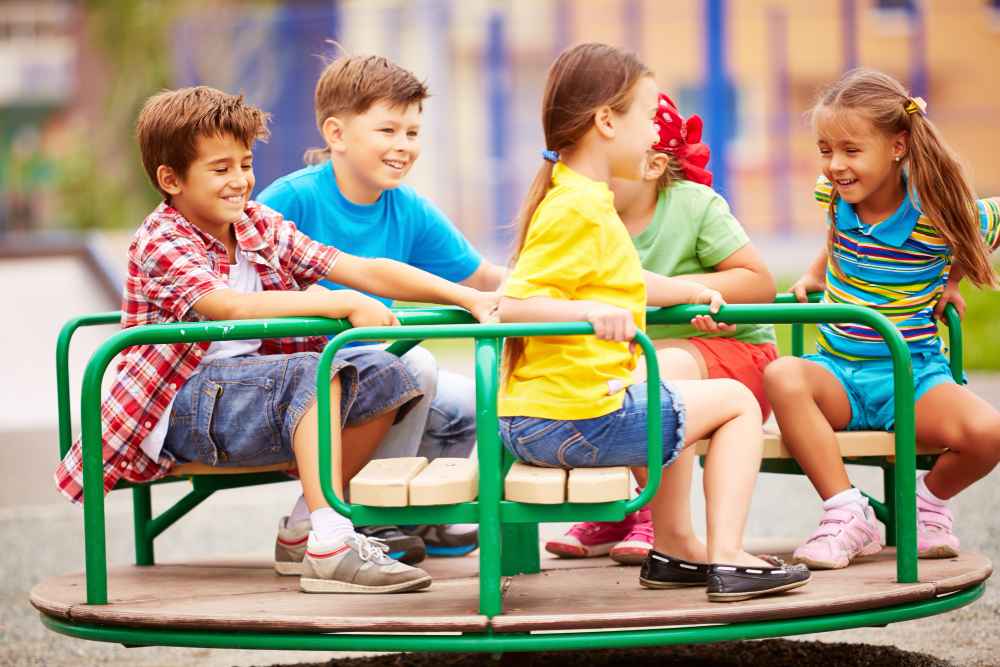
Preschool education is undergoing a transformation, with a growing recognition of the benefits of outdoor learning environments. Outdoor classrooms play a crucial role in enhancing preschool education, offering a dynamic and interactive setting that contributes to the holistic development of young children. This essay explores the multifaceted role of outdoor classrooms in enriching preschool education and fostering a love for learning.
Connecting with Nature and Enhancing Learning
Outdoor classrooms provide a unique opportunity for preschoolers to connect with the natural world. The sensory-rich environment of the outdoors stimulates curiosity, engages the senses, and encourages exploration. Children can observe and interact with plants, animals, and natural elements, fostering an early appreciation for the environment. This direct connection with nature enhances the learning experience, making lessons more tangible and memorable.
Promoting Physical Development and Well-Being
Outdoor classrooms offer ample space for physical activities that contribute to the overall development and well-being of preschoolers. The unrestricted outdoor environment allows children to engage in gross motor activities such as running, jumping, and climbing. These activities enhance coordination, balance, and muscle strength, laying the foundation for healthy physical development. Outdoor play also provides opportunities for unstructured activities, promoting creativity and imaginative play.
Enhancing Social and Emotional Development
Outdoor classrooms create a conducive setting for social interactions and the development of essential social skills. Children engage in collaborative play, share experiences, and learn to navigate social relationships in a natural and unforced manner. Team activities, group games, and shared outdoor adventures foster a sense of camaraderie and cooperation, contributing to the development of social and emotional intelligence.
Stimulating Cognitive Skills and Curiosity
The outdoor environment serves as a dynamic learning space that stimulates cognitive development and curiosity. Nature itself becomes a teacher, offering opportunities for hands-on exploration and discovery. Preschoolers can observe changes in the weather, investigate insects, and explore the properties of natural materials. Outdoor classrooms provide a rich context for learning about science, math, and the natural world, encouraging a sense of wonder and inquiry.
Encouraging Risk-Taking and Resilience
Outdoor play inherently involves an element of risk, providing children with opportunities to challenge themselves and build resilience. Climbing structures, balancing on uneven surfaces, and navigating natural obstacles contribute to the development of risk assessment skills and self-confidence. Outdoor classrooms provide a safe yet challenging space for children to push their boundaries, fostering a sense of resilience and a positive attitude towards overcoming challenges.
Creating a Positive Attitude towards Learning
The engaging and open-ended nature of outdoor classrooms contributes to the creation of a positive attitude towards learning. The freedom to explore, discover, and learn through play instills a love for learning from an early age. Outdoor environments offer a break from traditional classroom settings, allowing children to experience education as an enjoyable and enriching journey rather than a structured task.

Related : How Do Nature-Based Preschools Enhance Early Childhood Development?
Suggesting a Preschool: Embracing Outdoor Learning
When considering a preschool for their child, parents should seek institutions that embrace outdoor learning as an integral part of their educational approach. Consider preschools that have dedicated outdoor classrooms, natural play areas, and a curriculum that integrates outdoor activities. A preschool that actively incorporates outdoor learning provides a well-rounded educational experience that aligns with the developmental needs and curiosity of young learners.
Montessori Shir-Hashirim Los Angeles
- 6047 Carlton Way, Los Angeles, CA 90028
- Highly rated for focused curriculum, excellent staff, and diverse extracurriculars
- Half day: $27,000 yearly, $9,000 quarterly
- Full day: $28,500 yearly, $9,500 quarterly
Shir-Hasirim Montessori school has two different locations. The main location is on Carlton Way in Los Angeles. This school teaches children between the ages of 2 and 6 and prepares them for some of the top Montessori elementary schools in the city. Specifically, they offer a primary program and a summer program for preschool children.
At Shir-Hashirim, they allow their students to grow and learn both individually and within the community of the school. Students are able to learn at their own pace when it comes to both practical life skills and subjects such as math and language.
Shir-Hashirim Montessori has a parent-and-me program that is best for the families who may enroll their child in the Montessori program.
Conclusion
In conclusion, outdoor classrooms play a pivotal role in enhancing preschool education by providing a dynamic and enriching learning environment. Connecting with nature, promoting physical development, enhancing social and emotional skills, stimulating cognitive development, encouraging risk-taking and resilience, and creating a positive attitude towards learning are all facets of the valuable contributions outdoor classrooms make to preschool education. As we recognize the importance of holistic development in early childhood, outdoor classrooms stand as a beacon for fostering a love for learning that lasts a lifetime.
